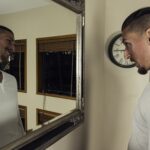As the counselor at a person’s first appointment for substance use issues, I inhale a deep, athletic breath. An urgent, high stakes race has begun.
If substance use has evolved into “substance use disorder,” commonly termed “addiction,” the person’s use meets NIDA’s defining criterion of “persistence despite adverse consequences.” This disorder impedes the very brain functions needed to achieve remission from substance use disorder, starting with decision-making and rank ordering of priorities. Further, the brain has overlearned substance use to the point of what’s termed “automaticity.”

Against these odds, can evidence-based protocols for achieving remission be conveyed in a way the client can understand and apply fast enough, for long enough, to slow or eliminate the person’s substance use, all in hopes of decreasing the occurrences of “adverse consequences”? In other words, can we get what works together swiftly enough to outrun the workings of this medical illness, of which the symptoms aren’t a cough and sniffles, but ominous “adverse consequences,” even premature death?
For many people, myself included, substances offer a nearly otherworldly experience of comfort and relief that meaningfully and profoundly meets needs and wants. Who in the world would want to quit that? And adverse consequences don’t happen every time…
That’s the competition.
I have a nifty, bright office where we can spread our work out on a round, white table. I wear nice clothes with a little style – what my mother termed “oomph,” usually from Bonomo’s – that I think the clients might enjoy.
But the clients and I both know, even with my faux tree and fashionable boots, I can’t play. Not against the bliss and oblivion offered by substances. We both go into the session knowing counseling vs. substances is laughable. Sometimes we do laugh, albeit ruefully. Then we give this counseling thing a go.
I urge clients to get medical care, the first line of treatment for substance use disorder. Medical care can directly treat some substance use disorders and provide relief for other accompanying physical and mental conditions that may be stressing the system and increasing the longing for relief through substances.
Then I offer evidence-based counseling protocols for assistance with substance use disorders, including cognitive behavior therapy (CBT), motivational interviewing, and contingency management. For fundamentals of these approaches, I use the umbrella term, “awareness skills.” We train with these skills in the most straightforward, interesting, engaging, and diverse ways I can think of.
We acknowledge the limits of skills. Science is getting closer, but so far can’t pinpoint exactly where and what is happening in the brain, so there are no direct ways to treat addiction. (The exception is opioid-based medications for opioid use disorder, which directly ameliorate the corresponding brain issues.) Counseling cannot accurately, efficiently, and directly treat the brain for addiction.
Risks lurk like beasts by my phony ficus tree: scientific uncertainty, the illness itself, co-occurring trauma and mental illnesses, return to active use, and those salivating “adverse consequences.” For many substances, there is no safe level of use, including the legal substances nicotine and alcohol. If the client is continuing to use substances, even minimally, a steel-toed boot hovers above the whole shebang, ready to drop. Given this scenario, a client simply showing up for an appointment is an act of heroism.
Although I have never had Army Special Forces training, I liken recovery from addiction to what I read and hear about the final survival test. Candidates are dropped into unknown territory, disoriented, with no weapons and no tools. Amidst conflict and instability, they are subjected to deprivations, dangers, and opponents’ unconventional tactics. Only their personal resources and their skills save them.
In a territory made unknown by the limits of science, with the potential for “adverse consequences” around every corner, people with substance use disorders don’t have the luxury of trial-and-error learning. We wrangle up strengths. We learn and immediately execute knife-sharp skills that research reports are effective, including silent, motionless observation. We race to save our lives.
Further reading
- Insider’s Guide to Early Abstinence
- Let’s Talk Openly About Substance Use
- How to Help a Loved One with Addiction: An Evidence-Informed Approach
Recommended reading
To understand the research on addiction:
- Unbroken Brain: A Revolutionary New Way of Understanding Addiction, by Maia Szalavitz. If you only have time to read two chapters, read Chapter 11 and Chapter 12.
- Resources listed in For Clients
Anne Giles, M.A., M.S., L.P.C., is a counselor in private practice in Blacksburg, Virginia. She can provide counseling services to residents of Virginia only.
This content is for informational purposes only and is not a substitute for medical or professional advice. Consult a qualified health care professional for personalized medical and professional advice.
Last updated 11/26/19
